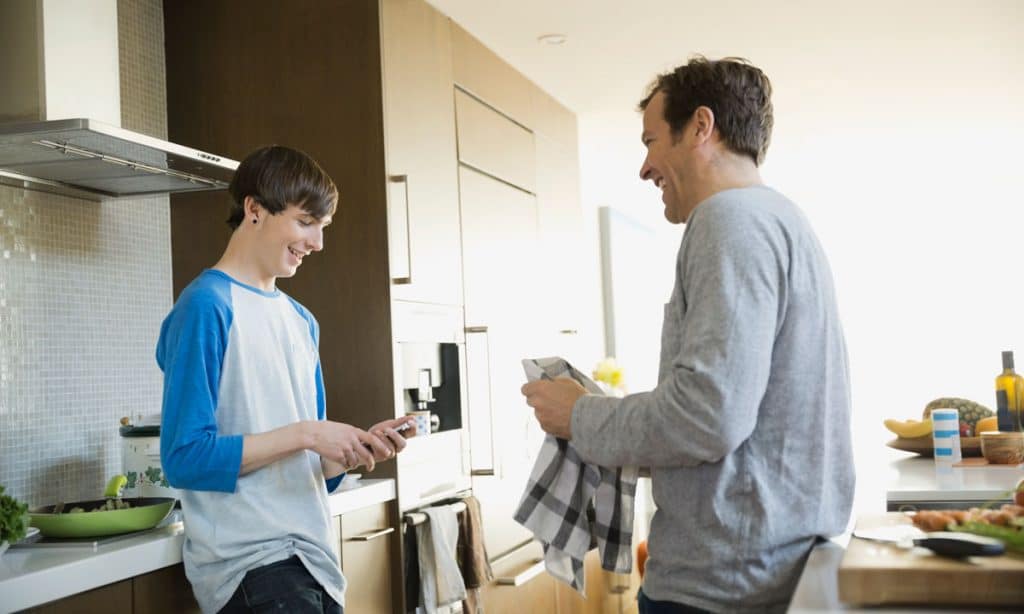
“It doesn’t have to start with ‘don’t smoke,’ but rather the fundamentals of what cannabis is, as a plant within a legal framework.”
As more and more states barrel through cannabis legalization (18 states are recreational, 36 have medical programs), it’s become easier for adults, namely parents, to open up about their use. There’s now even a brand called Dad Grass.
A quick Google search for Father’s Day shows an increasing number of recommendation lists that include cannabis products for dads, but not how to bridge that conversation with their kids. Studies indicate more and more parents are using cannabis and working in the medical and/or recreational industry, and the conversation around cannabis in the home is changing.

Photo by Hero Images/Getty Images
Don’t Deny It
Roger Bloss, interim CEO of MJ Holdings, started using medical marijuana after a car accident left him with chronic pain back in 2009. When he decided to tell his children, they were around 10 and 13-years-old. In his words, he just came out and said it, emphasizing that it was medicine that helped him not only work, but remain a present, doting father.
“Kids are smart, so if you try to hide it, they’ll see it,” says Bloss. “They saw it didn’t turn me into a monster. I never called it marijuana; I was very cautious and mindful that it was medicine.”
Consider Cultural and Community Context
Richard Huang was raised in Taiwan for 10 years before he and his family immigrated to the United States, where he says the societal perception of cannabis is much more negative. The stigma he was taught at home made it harder to form his own opinions until he tried it for himself, and he believes these stigma travel through communities and make it worse.
“We were taught as a child overseas that every drug is a drug,” he says. “Culturally, it’s ok to be drunk, but not ok to be high. It starts from not knowing. Everyone, no matter their ethnicity, are dealing with the same stigma.”
Photo by August de Richelieu via Pexels
His daughter, now 8, has grown up during a time where there’s more information out there than ever, and Huang looks forward to showing her all the good cannabis can do as both a medicine and recreational activity before social pressures inform her opinion.
Take Advantage of Resources
Brian Sekandi, a cannabis recruiting entrepreneur based in Toronto, Canada, realized that despite the size of the industry, which is nationally legal in Canada, there were so few resources for discussing what cannabis use and work looks like in 2021. As more and more families become a part of the legal market, new conversations will need to take place. It’s why Sekandi wrote Kids of Cannabis, a children’s book about the children of cannabis professionals, to get the ball rolling.
“If parents don’t educate their kid on cannabis, someone else will,” he says. “We want parents to own that conversation. It doesn’t have to start with ‘don’t smoke,’ but [rather] the fundamentals of what cannabis is, as a plant within a legal framework.”